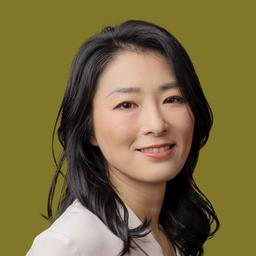The color of hair is determined by the pigment produced in hair follicles. If the pigment cells are damaged and produce less pigment, gray hair will appear. In addition to genetics and aging, stress can also cause gray hair. Dr. Ya-Wen Yu, a traditional Chinese medicine (TCM) practitioner at the Royal Jade TCM Clinic in Taiwan, outlined ways to reduce stress-induced gray hair on a program of The Epoch Times.
If no improvements are made to stress or physiological conditions, plucking out gray hairs will not alter the color of regrown hair from the same follicles. Moreover, frequent plucking of gray hair can damage the follicles.
Dr. Yu noted that the condition of the hair, nails, and skin can serve as indicators of internal organ health. According to TCM, the health of the kidneys can be reflected in the condition of the hair. Additionally, the kidneys are believed to be associated with the emotion of fear. When a person is frequently in a state of fear or stress, the over-secretion of the adrenal glands can deplete kidney qi .
3 Approaches to Reduce Stress-Induced Gray Hair
Dr. Yu recommends three lifestyle choices to reduce stress-induced gray hair:- According to traditional Chinese medicine, black-colored foods are associated with the kidneys. Eating more black-colored foods, such as black beans, black sesame seeds, and black fungus, as well as the Chinese herb Fo-Ti (He Shou Wu), can help nourish the hair by supplementing qi and blood.
- Hair is made of protein—so eating high-quality proteins like fish, pork, and chicken can help maintain healthy hair.
- Anthocyanins possess potent antioxidant properties, which help protect melanocytes in the hair follicles. It is recommended to eat foods rich in anthocyanins, such as blueberries and grapes. Additionally, these foods align with the TCM concept of black-colored foods for nourishing the kidneys.
- Ensuring an adequate intake of zinc is essential, as it supports keratin synthesis. Zinc can be easily obtained from seafood and other high-quality proteins. A deficiency in keratin can impact hair health, resulting in thinning hair and increased hair loss.
Maintaining a Healthy Scalp With Massage

Dr. Yu pointed out that scalp health is crucial for maintaining healthy hair. There are multiple meridians running through the head, including the Governing Vessel, Bladder Channel, Gall Bladder Channel, and Triple Burner Channel, which are covered with acupuncture points. According to traditional Chinese medicine, the internal organs are connected to the body’s surface through these meridians. Along the meridians are specific points known as acupoints, which possess unique functions. By stimulating the corresponding acupoints through techniques like acupuncture and massage, it is possible to treat diseases related to specific organs.
The Governing Vessel includes the Shenting, Baihui, Houding, Fengfu, and Yamen acupoints; the Bladder Channel includes the Cuanzhu and Tianzhu acupoints; the Gall Bladder Channel features the Fengchi and Shuaigu acupoints, while the Triple Burner Channel has the Jiaosun and Yifeng acupoints.
Dr. Yu recommends massaging these acupoints on the scalp with a combing motion. It is suggested to spend 10 minutes before bed combing the hair with your fingers in different directions. This relaxes the scalp, promotes sleep and enhances the circulation of qi and blood, thereby promoting the delivery of nutrients to the scalp and improving hair health.







